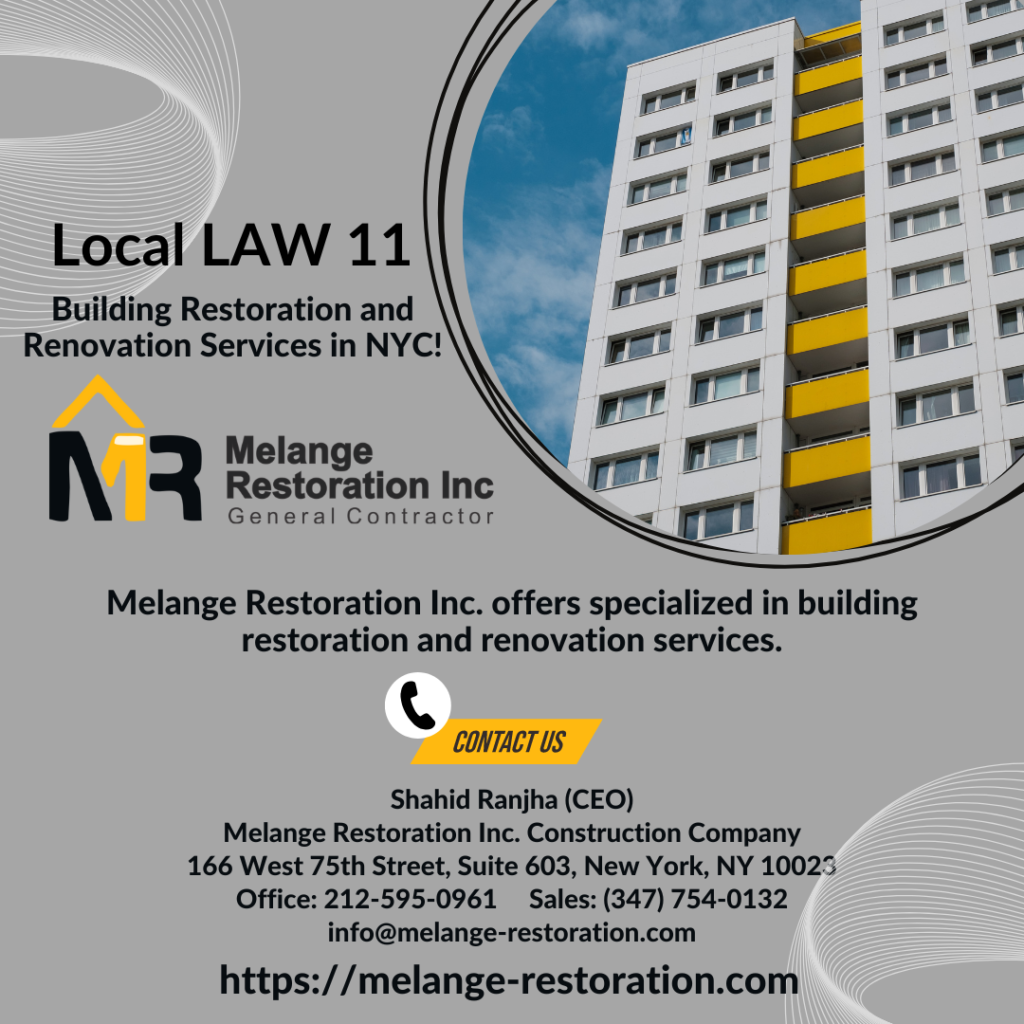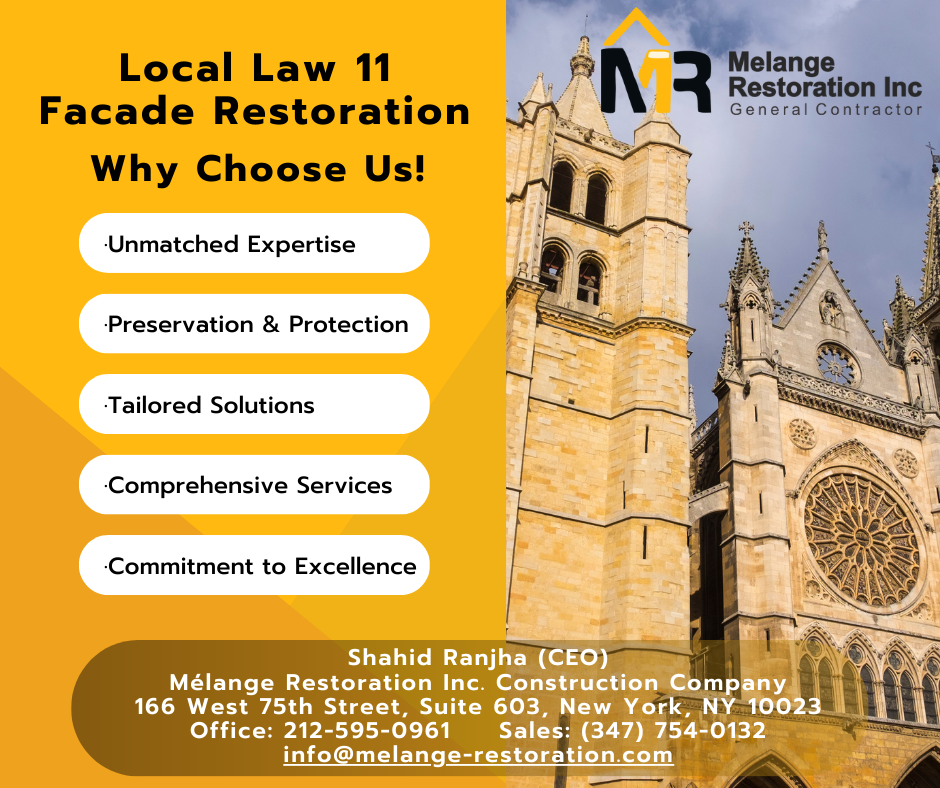Owning a building in the heart of NYC brings its own set of responsibilities. Among these is ensuring the safety and security of its facade, primarily through the Local Law 11 inspections. But how do you best prepare for these evaluations? Let’s dive into some essential practices.
1. Understand Local Law 11’s Scope and Significance
First things first, familiarize yourself with Local Law 11. This regulation mandates the periodic inspection of building exteriors taller than six stories. The primary aim? Guaranteeing the safety of pedestrians and preventing accidents stemming from falling masonry or other structural issues.
2. Get Ahead of Repairs
Be sure to highlight problems before the inspection. Regularly inspect your building facade and address any visible issues. Small cracks can become significant problems if left unattended. Regular maintenance is safer and can save money in the long run.
3. Choose the Best Local Law 11 Contractors in NYC
The quality of the inspection and subsequent repairs largely depends on the expertise of the contractors. Opting for the best Local Law 11 contractors in NYC ensures comprehensive evaluations and high-quality maintenance. They bring deep knowledge of city regulations, which is pivotal for compliance.
4. Maintain Comprehensive Documentation
Document Every repair, maintenance activity, or alteration done on the building. When the Local Law 11 inspection rolls around, these documents can provide a clear history, simplifying the process for the owner and the inspector.
5. Collaborate with Previous Local Law 11 Inspectors
If your building has undergone inspections before, it’s wise to collaborate with the previous inspectors. They can provide valuable insights into potential issues and areas that need closer attention.
6. Engage in Early Consultations for Local Law 11
Before the official inspection, opting for FISP services in NYC for a preliminary review might be beneficial. These early consultations can offer a heads-up on potential concerns, allowing you to address them beforehand.
7. Address Surrounding Environment
It’s not just about the building. The surrounding environment, like adjacent constructions, trees, or billboards, can influence the facade’s condition. Ensure these factors don’t compromise the safety or accessibility of inspectors.

8. Prepare the Residents
If the building is residential, communicate the inspection schedule and purpose to the occupants. Their cooperation is vital, especially if inspectors need access to specific areas. Plus, informed residents are more understanding of any temporary inconveniences.
9. Plan Financially for Potential Repairs
Let’s face it: inspections might lead to mandatory repairs. Having a financial reserve or a plan can make the process smoother. Moreover, working with the best Local Law 11 contractors in NYC often provides a clearer picture of potential costs, enabling better financial planning.
10. Stay Updated on Local Law 11 Changes
Laws and regulations evolve. It’s crucial to stay updated on any changes or amendments to Local Law 11. This ensures your preparation aligns with current requirements, eliminating any last-minute surprises.
11. Seek Recommendations and Reviews
While we’ve emphasized the importance of hiring the best FISP contractors in NYC, it’s also wise to seek recommendations. Talk to other building owners or managers. Their experiences can guide your choices and even introduce you to reputed Local Law 11 services in NYC.
12. Embrace Technological Tools for Inspections
With the advent of technology, many tools, including drones and software applications, can assist in facade inspections. Understand and utilize these tools for a more thorough and efficient assessment, especially in areas difficult to access manually.
13. Educate and Train Your Building Maintenance Team
Your on-ground team, consisting of maintenance staff and management, should know all requirements well. Regular training sessions can keep them updated, ensuring they proactively address facade issues and understand the significance of the inspection cycles.
14. Factor in Weather Conditions and Seasonal Changes
Weather conditions in NYC can significantly affect your building’s facade. From winter’s frost to summer’s heat, understand the impact of seasonal changes. Schedule inspections in favorable conditions and make necessary arrangements to protect the facade from harsh elements. Preparing for a Local Law 11 inspection isn’t just about ticking boxes; it’s about ensuring the safety of everyone around the building. By embracing these best practices, you ensure compliance and maintain the integrity and value of your property. Remember, even a regulation-driven process can be smooth and hassle-free with the right approach and expertise. Contact Melange Restoration Inc. to take care of FISP inspection precautions for you.



